The Darrow Scholarship at Michigan Law is a special merit award presented to a small number of select recipients in each entering class. Darrow Scholars are chosen by a faculty committee for their outstanding scholastic achievements and proven capacity for leadership, as well as for the sense that they will one day go on to a remarkable career.
Recent Darrow graduates have gone on to clerk for the U.S. Supreme Court; teach at top law schools across the country; and practice law at the U.S. Department of Justice and other key government agencies, at the most select private law firms, and at the most significant public interest organizations.
The Darrow Scholarships are named for Clarence Darrow, a former Michigan Law student who was renowned as a courageous defender of human rights and as perhaps the greatest trial lawyer in U.S. history. Darrow’s celebrated career exemplifies his outstanding professional success in both the private practice of law and the promotion of social justice that characterizes our most committed and talented graduates.
Darrow Scholarships vary in amount, but can cover as much as full tuition plus a stipend for three years at the Law School.
All admitted applicants are automatically considered for a Darrow Scholarship.
Darrow Scholarship Recipients
-
Kelsey N. Arnold
- Michigan Law, 2009, JD, Daniel H. Grady Prize, Michigan Law Certificate of Merit
- Wesleyan University, 2005, BA, government and French
Life as a Darrow at Michigan Law and beyond
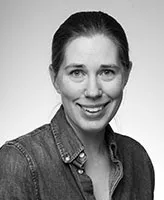
Without the Darrow Scholarship, Kelsey Arnold might not have gone to law school, she said.
“I was one of those students—there are probably more than there should be—who didn’t have a particularly clear idea of what I would do with a law degree. I was nervous about the cost of law school and a bit on the fence about what I should do. The Darrow was a clear push—including financially, but also as a validation that someone at least thought that this was something I could be good at.”
Without the Darrow Scholarship, Kelsey Arnold might not have gone to law school, she said.“I was one of those students—there are probably more than there should be—who didn’t have a particularly clear idea of what I would do with a law degree. I was nervous about the cost of law school and a bit on the fence about what I should do. The Darrow was a clear push—including financially, but also as a validation that someone at least thought that this was something I could be good at.”
As an undergraduate, Arnold spent a year at Sciences Po in Paris studying economics. She developed her French fluency, too—which she later bolstered by taking a French class while at Michigan Law. Like her undergraduate years, her time at Michigan Law included an experiential learning component.
“I had a bit of an unusual path through law school. I took a year off after my 1L year to figure out what I really wanted to do with a law degree.”
Arnold wound up spending nearly five months in California working on a farm—the furthest thing from attending law school imaginable. A chance meeting of a Michigan alumnus at the San Francisco International Airport—both were wearing Michigan sweatshirts—led to an offer to intern in the U.S. Attorney’s office for Northern California. She accepted the internship and worked in the tax litigation division.
“I discovered that I really enjoyed tax work. When I got back to Michigan a year later I took every tax class offered!” As a 3L, she spent a semester doing an externship, supervised by Professor Doug Kahn, with the Tax Appellate Section of the U.S. Department of Justice—which wound up being the subject of her thesis.
What she’s doing now
Following graduation, Arnold started working at Mayer Brown in Chicago on tax controversy and transfer pricing issues. She then moved to Geneva, where she joined PWC as a transfer pricing manager until 2015, at which time she joined Ralph Lauren, also in Geneva.
As tax director at Ralph Lauren, Arnold is responsible for tax provisioning and compliance issues in Europe, the Middle East, and Africa (EMEA), and global transfer pricing for North America, the Asian Pacific region, and EMEA.
“I really enjoy the variety of my work. My job is not specifically legal—within the realm of tax I do a mix of compliance and planning, so I have the luxury of looking both backwards and forwards.” She provides advice on how best to advance the business based on its history, which she finds fascinating. She also enjoys the wide geographic region she covers, calling it “eye-opening.”
Gratitude to Michigan Law for her Darrow
Arnold credits her Darrow for enabling her to take that year off during law school so she could explore her interests without worrying about debt.
“The funder of my particular grant told us that the idea of ‘grace,’ in the Christian sense, was very important to him. Grace is a gift that we may deserve but we don’t control, and that arrives when we may least expect it. I believe the Darrow really was like an act of grace in my life—I had no expectation of receiving such a gift, and it opened up possibilities that I never imagined. I am not a particularly religious person, but I appreciate what the funder meant and I [now] understand how powerful grace can be.”
-
Marisa Bono
- University of Michigan Law School, JD, 2005
- University of Michigan Ford School of Public Policy, MPP, 2005
- Rice University, BA, political science, 2001
Life as a Darrow at Michigan Law and beyond
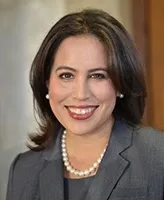
“Because of my Darrow, I was able to pursue my dream of becoming a civil rights lawyer right after law school—as I didn’t have to worry about paying off debt,” said Marisa Bono, ‘05. Bono began her legal career as a staff attorney at the Mexican American Legal Defense and Educational Fund (MALDEF)—a public interest nonprofit and the nation’s premier Latino civil rights firm.
As MALDEF’s southwest regional counsel, Bono led statewide cases such as challenging inadequate school funding for low-income and English language learning (ELL) students. She was one of the only attorneys in the county to try school funding cases in multiple states and the first Latina to argue a school funding case in the Texas Supreme Court.
As MALDEF’s lead attorney in the landmark school funding case, Martinez v. New Mexico, she helped represent more than 50 low-income and ELL students across the state during the nine-week trial. The MALDEF team prevailed, securing a court ruling that said education is a fundamental right in the state.
“I went to law school because I wanted to be a voice for others, and the Darrow enabled me [to] achieve that,” Bono said.
What she’s doing now
Today, Bono is chief strategic officer for VIA Metropolitan Transit—the mass transit agency for the city of San Antonio and its surrounding areas. In her new role as part of the agency’s public engagement group, she will strengthen relationships between the agency and VIA’s stakeholders.
Bono joined VIA after serving as chief of policy for San Antonio mayor Ron Nirenberg. As his adviser, she helped implement policies affecting housing, public safety, education, workforce development, and transportation—such as his ConnectSA initiative.
Much of her work involved helping San Antonio residents prepare for the anticipated growth of the city by more than 1 million new inhabitants by 2040.
Gratitude to Michigan Law for her Darrow
“My first year of law school was the same year that the Grutter and Gratz affirmative action cases were argued in the U.S. Supreme Court. Racial tension on campus was high, with many questioning whether students of color ‘deserved’ to be at the Law School. I received questions and comments like that personally. To me, the Darrow meant I did belong at Michigan—that I did deserve a place here, that I had a purpose, and couldn’t give up on myself.”
Bono believes she likely would not have attended a top-10 law school like Michigan Law without the Darrow. She also is grateful to her Darrow for allowing her to undertake her post-graduation clerkship and subsequent public interest fellowship, believing both helped her set up her career trajectory.
“Michigan Law opened doors for me and continues to do so to this day.”
-
Megan T. Chan
- Michigan Law, 2009, JD, cum laude
- University of Southern California, 2006, BA, political science, summa cum laude
Megan Chan knew she wanted to be a litigator. Years of high school and college debate confirmed her decision to attend law school. Michigan Law stood out because of its unique blend of academic excellence and collegiality, and the Darrow Scholarship propelled Michigan to the top of her list.
Why Michigan?
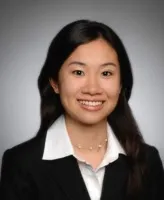
Once Chan started at Michigan, she knew she made the right choice. She credits Dean of Admissions Sarah Zearfoss with “selecting individuals with diverse backgrounds and experiences, which contribute to a well-rounded class.”
The varied perspectives brought by these students challenged Chan to think critically about issues from different angles. Michigan gave her the opportunity to utilize those skills in a practical manner through her participation in the Pediatric Advocacy Clinic, where she advocated for low-income families.
Thanks to her Darrow Scholarship’s 1L summer stipend, Chan felt the financial freedom to accept a judicial externship with Justice Earl Johnson Jr. of the California Court of Appeal. Drafting opinions for Justice Johnson and her interactions with him gave Chan invaluable insight into judicial decision-making that she incorporates into her everyday practice.
What she’s doing now
After earning her JD in 2009, Chan began working at Morrison & Foerster LLP’s Los Angeles office. She was a member of the firm’s Consumer Litigation and Class Action Practice Group, which included federal, state, and multi-district litigation, with a focus on commercial and class-action matters.
From 2013 to 2015, she served as a law clerk to the Hon. Audrey B. Collins of the U.S. District Court for the Central District of California. After her clerkship, she joined the University of Southern California in February 2015, where she is the assistant dean of financial aid–compliance and training.
The benefits of a Darrow Scholarship
Chan often meets with new Darrow Scholarship recipients and encourages them to think about what they want to do with their degree after graduating from law school.
“I urge them to really think about law school not as the end, but the beginning,” she said. “It’s easy to see all those offer letters and ignore the dollars, but after law school, you want to be able to do what you want with your career. If you’re spending the next several years paying off debt, it’s going to restrict your choices. There is a lot of freedom coming out of law school as a Darrow Scholar.”
-
Emma Cheuse
- Michigan Law, 2006, JD, Order of the Coif
- Harvard-Radcliffe College, 1998, BA, social studies, magna cum laude
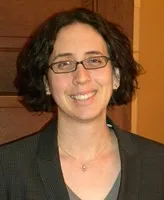
Like many college students, Emma Cheuse knew what interested her—social justice and public interest work—but wasn’t sure of the specific path she wanted to take. So as a Harvard-Radcliffe student, she immersed herself in all kinds of activities that exposed her to various issues, from volunteering on the campaigns of progressive politicians to working with coalitions against sexual assault and sweatshops.
“I explored a lot of different areas, but law kept coming up as a constant that would help me work for civil rights and social justice issues,” Cheuse said. “I had this concept that law would be a tool that I could use to address some of the disparities I saw and to help me do the public interest work that most motivated me.”
Environmental justice
In 2008, Cheuse joined the Washington, DC, office of Earthjustice, a nonprofit, public interest law organization which protects the right to a healthy environment. A staff attorney, Cheuse works with communities living in the shadow of oil refineries and seeking to reduce air pollution and prevent industrial chemical disasters.
In a recent case, she argued that the Environmental Protection Agency has a responsibility to safeguard the health and well-being of community residents and first-responders near chemical plants. The D.C. Court of Appeals sided with Cheuse who represented those who were exposed to volatile chemicals during and after Hurricane Harvey. In 2015 she was recognized as one of the best LGBT Lawyers Under 40 by the National LBGT Bar Association.
“I’m grateful to have one of those rare public interest jobs where I get to combine litigation and policy work, and to feel needed and useful every day,” Cheuse said. “In many cases, I’m a lawyer for communities that are particularly exposed to and affected by toxic pollution, and I’m trying to help make sure our government fulfills its legal duty to protect communities’ health.”
Political activism
After graduating with a BA in social studies, magna cum laude, from Harvard-Radcliffe in 1998, Cheuse didn’t immediately enter law school. She spent five years working for political candidates and campaign organizations in Massachusetts, Illinois, Virginia, and Minnesota, “because I felt that by helping people get involved in the political process and expand access to democracy, I would help make progress on a broad array of issues that I cared about, from the environment to civil rights to education.”
The Michigan difference
When it was time for Cheuse to select law schools, Michigan made the short list. “I had a warm spot in my heart for Ann Arbor, because I had visited family there briefly when I was a kid.” Ultimately, she chose Michigan because of its strong tradition in public service. “It was that the law school cared deeply about public service and I could see that the community of students who wanted to do public service would be at the heart of the school, never isolated,” she said. “Public service was something the Law School supported and encouraged, and it was a viable and important option.”
Cheuse wanted to be a “full participant in the rich community outside the classroom” at Michigan, so she once again immersed herself in activities. She served on the Michigan Law Review, took the Child Advocacy Law Clinic, was active in Outlaws, and co-founded the Michigan Election Law Project, which placed more than 100 law students in various voter protection programs during the 2004 presidential election.
An outgrowth of that project was the Michigan Voting Rights Initiative, in which law students analyzed every voting rights case that had been published, entered the outcomes in a database, and co-authored a report with Professor Ellen Katz that was cited in the Congressional Record on the reauthorization of the Voting Rights Act.
“That, to me, is an example of what Michigan’s interest in public service really means,” Cheuse said. “We worked with civil rights nonprofits to bring leading attorneys from around the country to visit campus and interact with students. Because of what Michigan is as an institution and because of people like Professor Katz who gave tremendous time, energy, and creative thinking to this endeavor, about 100 students were able to participate in the Michigan Voting Rights Initiative and delve into the living history of one of the most important civil rights laws ever enacted in the United States. I’ll always be grateful to have had the chance to be part of that.”
After receiving her JD, Order of the Coif, in 2006, Cheuse spent a year as a fellow with the Alan Morrison Supreme Court Assistance Project at Public Citizen, then clerked for Judge Judith Rogers of the U.S. Court of Appeals for the D.C. Circuit before joining Earthjustice.
“I’m lucky to have had the Darrow”
Attending Michigan, she said, was “one of the best decisions I ever made.”
“I feel extremely lucky to have had the Darrow, because it gave me more freedom in the kinds of jobs I could pursue right out of law school, and because it helped ensure that I went to Michigan, where I made lifelong friends. I can’t imagine a better law school experience, not just because of the caliber of the legal education and the unique activities I found there, but also because of the people, who make the place what it is. The professors and student body are beyond wonderful.”
-
Melissa Cohen
- Michigan Law, 2009, JD
- Duke University, 2005, BA, philosophy
When Melissa Cohen applied to law school, it was with absolute certainty that she wanted to pursue public interest law. An internship with the ACLU National Office in New York City had opened her eyes to the social and political work the attorneys were doing, and it solidified her desire to become a lawyer. In turn, being offered a Darrow Scholarship cemented Cohen’s decision to attend Michigan Law.
A public service focus
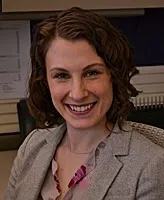
“The Darrow Scholarship was critical in helping me make my decision,” Cohen said. “I’m aware that a career in public interest doesn’t pay the same as working at a law firm, so it was important to me that I could afford to do the work I wanted to do after law school. It meant a lot that the Law School seemed to value students who were coming in with a public interest focus and wanted to help them pursue that career.”
Cohen found a cohort of other like-minded students at Michigan, who were also supportive of her desire to use the law to make a difference in the world. “I made wonderful friends at Michigan and was able to build a community that understood and valued the kind of work I was looking to do,” she said.
Cohen returned to Michigan Law in 2015-2016 as one of the first Public Interest Community Visiting Fellows.An advocate for children
Cohen was involved in several activities at Michigan Law, including serving on the Michigan Journal of Gender and Law, participating in the Women Law Students Association, and conducting research for Clinical Prof. Frank Vandervort. Her favorite experience, by far, was the Child Advocacy Law Clinic, which she credits with helping her learn how to become a lawyer and champion for children.
“It was an incredible, hands-on experience,” she said, “and set me on a path to doing child advocacy work the first five years I was out of law school. I really loved the experience.”
After graduating from the Law School in 2009, Cohen began working as a Skadden Fellow at Children’s Rights, an advocacy organization in New York that helps abused and neglected kids. When the fellowship ended after two years, Children’s Rights hired her as a staff attorney. During her time with the organization, Cohen litigated federal class-action lawsuits that were “aimed at fixing broken foster care systems across the country. It was exactly the kind of social justice work I went to law school hoping to do.”
A dream job
Cohen is now doing social justice work of a different kind—as a staff attorney with Planned Parenthood Federation of America in New York, which she joined in May 2014. She represents Planned Parenthood regional affiliates across the country that are challenging abortion restrictions. One of Cohen’s current cases involves representing Planned Parenthood of the Great Northwest, which is challenging a restriction on Medicaid funding for abortion in Alaska.
“It’s a critical time in this country to be working on reproductive rights issues,” said Cohen, a women’s studies minor at Duke University. “Planned Parenthood does incredible legal work and it has always been a dream of mine to join its litigation team.”
And it’s a dream job that the Darrow Scholarship helped make possible. “The Darrow truly allowed me to pursue the career I wanted,” she said.
-
Shayna Cook
- Michigan Law, 2001, JD, magna cum laude, Order of the Coif
- Trinity University, 1998, BA, history, summa cum laude, Murchison Scholar, Commencement Speaker
As a history major at Trinity University in San Antonio, Texas, Shayna S. Cook developed a particular interest in the legal issues surrounding the courts that were established in the South after the abolition of slavery. That interest, along with two constitutional law courses, helped her realize that she wanted to study law rather than pursue a PhD in history.
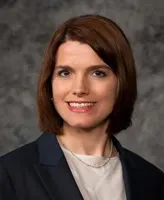
Cook, who was a Murchison Scholar at Trinity, graduated with a BA in history, summa cum laude, in 1998, and went straight to law school. She chose Michigan, she said, not only because of its clinical programs but also because of its strong tradition in public service, which Cook valued, given that she had served as president of the Trinity University Voluntary Action Group, the school’s student volunteer organization.
Why Michigan?
“I had a great experience at Michigan,” Cook said. “I met a lot of smart, wonderful people there. All of the professors seemed to have an open door and a willingness and interest to talk to students about anything at any time. I really appreciated that.
Professor Evan Caminker [now Dean of the Law School] was my con law professor his first semester at Michigan. He was a great professor and I learned a lot from him, and he was very supportive of me and my career pursuits.”
Cook served on the Michigan Law Review and was executive note editor in her 3L year. She also took the Domestic Violence Clinic and worked with Jim Hathaway, the James E. and Sarah A. Degan Professor of Law, on research related to refugee law issues.
Rewarding legal experiences
After graduating from Michigan Law with a JD, magna cum laude and Order of the Coif, in 2001, Cook served as a law clerk for the Honorable Sam Sparks, U.S. District Judge for the Western District of Texas, from 2001 to 2003. She then had a three-month refugee law fellowship in Brussels with the European Council on Refugees and Exiles, before working as a trial attorney in the Attorney General’s Honors Program at the U.S. Department of Justice from 2003 to 2005. The experiences, she said, were rewarding.
“The clerkship was very interesting and fun, and I encountered a variety of cases. My judge was a great mentor and still is, and I learned so much from watching him and watching the lawyers in the courtroom. I feel it prepared me very well for my practice now.
My work with the Department of Justice was also interesting, because I was in the division that handles constitutional challenges to statutes and regulations. So I dealt with some hot issues in constitutional law, such as faith-based initiatives.”
Following her stint with the Department of Justice, Cook joined Bartlit Beck Herman Palenchar & Scott LLP in 2005, because she wanted to become a trial lawyer. She handled “high-stakes, complex litigation, ranging from pharmaceutical product liability and intellectual property cases to government contracting cases.”
Cook is now a partner and trial lawyer at Goldman Ismail Tomaselli Brennan & Baum LLP, where she represents “multinational clients in a variety of commercial litigation, including intellectual property, products liability, class actions, and contract disputes.”
The benefits of a Darrow Scholarship
Cook said she is grateful to have had the opportunity to practice different types of law after graduating, and she credits Michigan, in particular, being a Darrow Scholar, with providing those experiences.
“The education I received at Michigan helped to open my eyes to all the different lines of work that are available,” Cook said. “The Darrow Scholarship really gave me the freedom to pursue different areas and find out, through experience, where I really wanted to be. The whole path of exploration is something I never could have done without the scholarship.”
-
Dawud Crooms
- Michigan Law, 2009, JD, cum laude; Certificate of Merit Award, Contracts
- Morehouse College, 2004, BS, computer science, cum laude, Ronald E. McNair NASA Scholar, Presidential Scholar
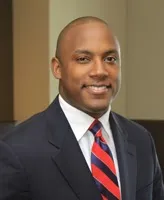
Dawud Crooms was a derivatives risk management analyst with JPMorgan Chase before entering law school. He enjoyed his job, but it’s the type of work, he said, that is limited to certain markets. Crooms and his wife wanted to leave New York for a less expensive city in which to raise their young child, so upon the advice of close family and mentors, Crooms pursued law as a means of broadening his career options.
Though he had an idea that he would focus on transactional-related law, “What I didn’t want to do was spend three years in law school and get right back into something that had a narrow scope and was done in a handful of markets,” the New Jersey native said.
“I knew I wanted to get into transactional work, but I didn’t want to get into things I had done before that were pretty narrow.”
What he’s doing now
Crooms joined 7-Eleven as senior counsel in June 2015. After earning his JD in December 2009, he began working as an associate in the Corporate/Securities Group at Haynes and Boone, LLP in Dallas. His practice focused on capital markets transactions, public and private mergers and acquisitions, corporate governance, securities acts compliance, and derivatives.
“One of the main reasons I picked my firm is that it was large enough that I got to do complex, high-dollar transactions,” he said. “But, because they are a mid-size firm, I got an opportunity to be the lead associate on deals with both middle-market and Fortune 500 companies. We worked with smaller teams, so I got to see a larger part of the deals.”
The impact of the Darrow Scholarship
Being a Darrow Scholar, Crooms said, afforded him more flexibility and freedom to think about his career opportunities. “The Darrow Scholarship gives you the opportunity to think outside the box. I knew I wanted to go to a firm, and the way the Darrow helped me, is that it gave me the opportunity to evaluate firms without having to focus solely on the projected three-year total compensation. Money wasn’t my number-one concern, so I was able to find a firm that fit my family and my practice desires.”
Why Michigan Law?
Haynes and Boone has a collegial atmosphere in which teamwork is valued—attributes that were important to Crooms when he was looking at law schools. “Being a lawyer wasn’t my lifelong passion or desire, so I was pretty cautious about which law schools I wanted to attend. There’s a short list of schools that are highly regarded and known to be collegial places, where you can get a good education, meet good people, and not fight tooth and nail with your classmates.”
Michigan, he said, lived up to its reputation of being a collegial environment. “People were open to helping each other, because there was an understanding that you doing well was not to the detriment of someone else’s future prospects,” he said.
Indeed, Crooms, whose family grew to include a second child at the end of his 1L year, experienced that helpfulness from professors, in particular, who allowed him to bring his youngest to class when there were scheduling conflicts.
“Michigan was great for me and my family,” he said. “The atmosphere allowed me to raise my family, do well academically, and enjoy the experience. While there aren’t as many Michigan grads here in Texas as there are in other places, there is a solid network here. The Michigan degree is well-respected, and has done me well.”
-
Kim Forde-Mazrui
- Michigan Law, 1993, JD, magna cum laude and Order of the CoifHenry M. Bates Memorial Scholarship (highest graduation award); Carl Gussin Memorial Prize (excellence in trial advocacy); First Place: 1992 ABA Regional Client Counseling Competition
- University of Michigan, 1990, BA, philosophy, summa cum laudeClass Honors Award: 1987, 1988, 1989, 1990; James B. Angell Scholar; Phi Beta Kappa; Golden Key National Honor Society
Kim Forde-Mazrui’s resume is impressive, the accomplishments seemingly endless—not surprising for someone who studied law at a top 10 school and is now teaching at another.
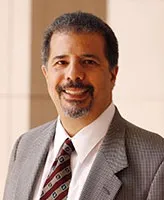
Since 1996, Forde-Mazrui has been a member of the University of Virginia School of Law faculty, becoming a full professor in 2001. The Mortimer M. Caplin Professor of Law and Earle K. Shawe Professor of Employment Law teaches Constitutional Law, Employment Discrimination, Criminal Law, and Racial Justice and Law, and his scholarship focuses on equal protection, particularly as it applies to race and sexual orientation.
In addition, Forde-Mazrui served as the Barron F. Black Research Professor and the Justice Thurgood Marshall Distinguished Research Professor of Law. In 2003, he was appointed the inaugural director of the Center for the Study of Racial Justice and Law, a position he held until 2010, and resumed in 2016.
A dream job
“It’s a dream job,” Forde-Mazrui said of working in academia. “Intellectually, the work is very rewarding. I get to choose what subjects I want to teach, what readings I want to assign, and what issues I want to research and write about. In a sense, it’s about being a lifelong student. It feels purposeful helping to impart to students not only the skills and knowledge to be a lawyer, but also my perspective on how best to understand the issues that we study. It’s also rewarding to work with such smart and engaging students and colleagues.”
On becoming a lawyer
Forde-Mazrui’s interest in becoming a lawyer was fostered at a young age. He was fascinated by law, enjoyed debates and arguments, and had an understanding of social justice and civil rights issues, thanks to his parents, who were of different races and religions and from different countries. Dinnertime conversations, the Ann Arbor native said, centered on world events and politics, which instilled in him a desire to pursue “human-focused law.”
At Michigan, Forde-Mazrui was a student-attorney with the Family Law Project and a notes editor with the Michigan Law Review, which “opened his eyes” to the possibility of a career in academia. That interest was nurtured by several Michigan law professors who recognized Forde-Mazrui’s affinity for understanding and thinking about the theoretical aspects of law.
After law school, Forde-Mazrui served for a year as a judicial clerk to Judge Cornelia G. Kennedy of the U.S. Sixth Circuit Court of Appeals, then practiced for two years at Sidley & Austin in Washington, DC, before joining Virginia Law.
How the Darrow Scholarship helped him
Being a Darrow Scholar, Forde-Mazrui said, not only eased the financial burden of going to law school, but enabled him to “stay in a place I love” and expanded his choices: “If I had more debt, I would have had to perhaps work in practice longer to pay off those debts, and it may have reduced my opportunity to go into academia.” Most importantly, it gave him “a vote of confidence that I would do well at Michigan Law.
“I can say unequivocally that you get an outstanding legal education at Michigan, and it absolutely expands one’s opportunities in pursuing a legal career,” he said.
“In addition, Ann Arbor is great. It’s a mix of a college town that is fairly small and manageable but large enough to have a variety of cultural and social events. If someone has the opportunity to attend Michigan, they’ll have an embarrassment of luxuries.”
-
Andrew Goetz
- Michigan Law, 2007, JD, summa cum laude, Order of the Coif
- Michigan State University, 2004, BS, chemistry; BA, political science with high honors
Life as a Darrow at Michigan Law and beyond
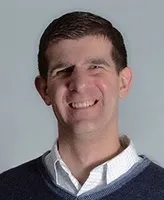
Andrew Goetz was delighted when he was named a Darrow Scholar.
“The Darrow felt like an extraordinary honor—something that I worked hard to live up to.” One of the things that he most appreciated about his time at Michigan was the opportunity to participate in the clinical law program.
“It was intellectually challenging and it was interesting—and it provided me with firsthand experience about what it would be like to practice law.” Having the Darrow also enabled him to take full advantage of Michigan Law’s offerings such as participating in the Henry M. Campbell Moot Court Competition and serving as the notes editor for Volume 105 of the Michigan Law Review.
What he’s doing now
Goetz joined the U.S. Attorney’s Office for the Eastern District of Michigan in 2010. Today, he is the appellate chief—a role he’s held since August 2018—and manages the office’s appellate staff and caseload before the U.S. Court of Appeals for the Sixth Circuit.
One thing he loves is the diversity of the work. From drafting and revising appellate briefs, to reviewing adverse decisions and evaluating the odds of success on appeal, to consulting within the office on complicated legal questions that arise during district court cases or investigations, every day presents new challenges.
One of Goetz’s favorite parts of the job is the opportunity to argue cases before the Sixth Circuit. Having just completed his 30th oral argument before the Sixth Circuit, Goetz is proud of his career and the experiences it’s afforded him.
“It’s one of the many things that I appreciate about working for the Department of Justice: I’ve had more opportunities to litigate in federal court—and more responsibility over complex cases—than I ever would have thought possible at this point in my career.”
Prior to his tenure as appellate chief, Goetz was a senior litigation counsel at the U.S. Attorney’s Office for the Eastern District of Michigan, where he organized indictment reviews and trial-team meetings. He put in place the office’s attorney-training program, advised the office on policy changes, and consulted attorneys when legal questions arose during cases. Goetz also spent three years as the deputy chief of the office’s appellate division, where he helped manage the staff and caseload and litigated some of the office’s more complex cases.
Immediately following graduation, Goetz clerked for The Hon. Mary Beth Briscoe of the U.S. Court of Appeals for the Tenth Circuit. He then worked as an associate at WilmerHale representing corporations, financial institutions, and individuals under investigation by federal and state regulatory authorities before joining the U.S. Attorney’s Office for the Eastern District of Michigan.
Gratitude to Michigan Law for his Darrow
When asked what the Darrow means to him and why he’s grateful to have been a recipient, Goetz is quick to use the word opportunity to describe the most meaningful aspect of his scholarship.
“It gave me the chance to pursue public service earlier in my career than I otherwise could have. I’m very grateful for that opportunity.”
-
Teagan Gregory
- Michigan Law, 2012, JD, magna cum laude
- University of Delaware, 2009, BA, International Relations
Life as a Darrow at Michigan Law and beyond
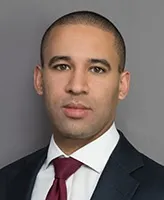
For Teagan Gregory, the Darrow Scholarship was one of Michigan Law’s strongest draws when he was deciding where to attend law school. Today, he considers it one of the best decisions of his life—both personally and professionally. His wife attended the U-M Medical School while Gregory was at the Law School. He loved their adventure in Ann Arbor.
“We made a number of lifelong friendships and launched our respective careers from the University of Michigan. At the end of a few years in Ann Arbor, we found ourselves in jobs we loved and without the financial limitations that can sometimes accompany a graduate education.”
In addition to being a Darrow Scholar at Michigan Law, Teagan wrote for the Michigan Law Review, including the article “Unclaimed Property and Due Process: Justifying ‘Revenue Raising’ Modern Escheat.”
He also served as co-chair of the Student Funded Fellowships board and as a Legal Practice research assistant and mentor.
What he’s doing now
After graduating from Michigan Law, Gregory clerked for The Hon. Gregory M. Sleet of the U.S. District Court for the District of Delaware from 2012 to 2013. Today, he is an associate at Williams & Connolly LLP in Washington, DC, where he focusses on complex civil litigation, including intellectual property and general commercial disputes.
In his time at Williams & Connolly, Gregory has been a member of several trial teams, including the team that tried the first “pay-for-delay” antitrust case following the U.S. Supreme Court’s decision in FTC v. Actavis and another team that tried a multi-week murder trial in Charles County, Maryland.
In 2018, the Leadership Council on Legal Diversity selected Gregory to participate in its Pathfinder Program for “diverse, high-potential, and early-career attorneys.”
The program provides its participants with tools to leverage their professional networks by helping them to develop skills in relationship-building and foundational leadership. The ultimate goal is helping new attorneys build strong careers either in-house or in a law firm.
Gratitude to Michigan Law for his Darrow
Gregory believes that the Darrow Scholarship is meaningful to those familiar with it—knowing those receiving it have proven leadership ability, a history of outstanding scholastic achievements, and demonstrate remarkable future career potential.
“I think the Darrow Scholar label means something to a certain subset of the legal community, and it certainly holds weight among Michigan alumni. I suspect that it has opened doors for me along the way, some of which I might not even have noticed.”
Gregory is grateful to have received the Darrow Scholarship and considers it to be one of his proudest academic achievements.
“Not only did it provide a degree of financial flexibility and allow some risk taking but, on a more personal level, it meant a lot to receive a scholarship that has been given to some truly talented and accomplished people.”
-
Samuel Hall
- Michigan Law, 2013, JD, magna cum laude, Order of the Coif, Finalist in the Henry M. Campbell Moot Court Competition
- University of Wisconsin, 2007, MPA, social and poverty policy
- University of Wisconsin, 2006, BA, political science and music performance
Life as a Darrow at Michigan Law and beyond
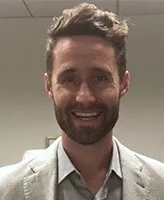
Samuel Hall considers himself fortunate in a number of ways. For starters, he was able to attend Michigan Law without worrying about financial obligations following graduation. “I’m pretty debt-averse, so being able to approach law school and a legal career without the specter of student debt has had an immense effect on my happiness and my career choices. I owe that entirely to the Darrow Scholarship.”
What he’s doing now
After law school, Hall worked as a trial attorney in the Civil Rights Division of the U.S. Department of Justice (DOJ) through the Attorney General’s Honors Program. While at the DOJ, he was counsel on the case, United States v. Synchrony Bank, which, at the time, was the Civil Rights Division’s largest credit-card discrimination suit in history.
In 2017, Hall joined private practice, first with Boies, Schiller, Flexner, and then with Willkie Farr & Gallagher LLP—where he litigates cases on behalf of both plaintiffs and defendants. Hall has taken part in a variety of matters, including defamation suits; congressional hearing preparations; voting rights challenges in the way states allocate electors under the Electoral College; an action against a foreign state for its role in terrorist acts; and numerous matters involving regulatory compliance and government investigations.
Since 2016, Hall also has been an adjunct faculty member at Georgetown Law, where he teaches United States Legal Research Analysis and Writing.
Gratitude to Michigan Law for his Darrow
Being a Darrow Scholar has opened doors for Hall and has helped him land every job since he graduated. “I’ve found that the legal community knows and respects the Darrow Scholarship. In most interviews I’ve had, the interviewer has remarked on the Darrow, and often mentioned another they’ve worked with.”
The Honors Program at the DOJ was “full of Darrows,” according to Hall. The Darrow alumni network has been a consistent source of help to Hall who says they have always been eager to help every step of the way.
“The Darrow was, and is, a life-changing gift. It meant that I could value my passions over my financial obligations when deciding what classes to take, clubs to join, and internships and jobs to apply for. Six years after law school, I still think about what a privilege it was to go to Michigan with a Darrow Scholarship. It’s one of the best choices I’ve ever made.”
-
Shekar Krishnan
- Michigan Law, 2009, JD
- The Cooper Union for the Advancement of Science and Art, 2006, BS, engineering
Life as a Darrow at Michigan Law and beyond
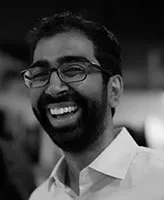
Ten years into his legal career, Shekar Krishnan is still extremely grateful he was named a Darrow Scholar at Michigan Law. “The impact of the Darrow Scholarship on my life cannot be overstated. In addition to enabling me to pursue my career in housing justice, the scholarship was one of the critical factors in my decision to attend Michigan Law, where I’ve made some of my closest friends and developed lifelong professional relationships.”
At Michigan Law, Krishnan was a contributing editor for the Michigan Law Review. He also made a number of friends, feeling fortunate that he attended a school with such “a strong and uniquely tight-knit public interest community.” Krishnan keeps in touch with many of his former Michigan Law classmates today even though they’re scattered across the country and focused on different areas of advocacy work.
But the most important connection Krishnan made at Michigan was with his wife—Zoe Levine. ’09—a public interest lawyer specializing in immigration and reproductive rights. Their two children are, according to him, “little activist babies (and Michigan football/basketball fans) in their own right.”
What he’s doing now
Today, Krishnan is the director of legal advocacy and strategic partnerships at Brooklyn Legal Services Corporation A, also called Brooklyn A. He oversees litigation and advocacy for local tenants and tenant groups who are facing eviction and/or harassment from landlords. The overarching mission of Brooklyn A is to help its clients work collectively to amplify their voices and to protect their homes and civil rights.
It’s a charge to action that resonates with Krishnan who, fresh out of law school, litigated the Broadway Triangle case for Brooklyn A. The case had “a formative impact on me both professional and personally.” More than 40 community organizations sued the City of New York regarding the proposed rezoning of a large parcel of vacant land—also the most segregated—called the Broadway Triangle. “The Coalition’s litigation successfully stopped the rezoning as proposed, and we won a preliminary injunction in 2012. It took another five years to reach a landmark settlement that comprehensively resolved the case.” The case brought home to Krishnan the importance of communities banding together to make their voices heard by those in power across all levels of government. “Far more important than laws or litigation, it is the sustained, organized efforts of everyday individuals that creates change to advance racial justice.”
Prior to his current role at Brooklyn A, Krishnan was an associate at Weil, Gotshal & Manges LLP and Patterson Belknap Webb & Tyler LLP. He clerked for The Hon. Jack B. Weinstein of the U.S. District Court for the Eastern District of New York.
In his spare time, Krishnan serves as a member of the board of directors of the New York Foundation and as the co-chair of Friends of Diversity Plaza in Jackson Heights, Queens. His pieces have appeared in City Limits (“Amazon Will Deliver More Displacement to NYC’s Working Class”); NY Daily News (“Race Lost for the New East New York” and “Throw the Book at Crooked Landlords”); the Queens Tribune (“The Real Needs of NYC’s Plaza’s”); and for the CUNY Law Review (“Advocacy for Tenant and Community Empowerment”).
Gratitude to Michigan Law for his Darrow
“Put simply, the Darrow Scholarship allowed me to pursue the civil rights work that I love, right from the start of my career. I was able to chart my career based on my passion and what was best for my family without feeling encumbered from a financial standpoint. For that I’m extraordinarily grateful to Michigan. It’s a debt of gratitude that I will always pay forward, especially as I cross paths with Michigan Law students or graduates along the way. I also know that it’s a privilege, which makes me feel a firm sense of responsibility to serve others.”
-
Alison Lisi
- Michigan Law, 2016, JD
- Carleton College, 2012, BA, Spanish language and literature
Life as a Darrow at Michigan Law and beyond
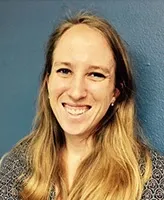
Alison Lisi was able to enjoy law school to the fullest due to the Darrow Scholarship she received from Michigan Law. She took classes on immigration and refugee law, seized every pro bono opportunity she could to work on immigration cases, and participated in an externship at the Detroit Immigration Court.
“To me, being a Darrow Scholar meant having freedom—freedom to take whatever classes interested me most in law school, freedom from worrying about graduating law school with crushing debt, and freedom to pursue my dream of becoming an immigration attorney at a nonprofit legal services organization. Personally, my Darrow made law school a lighter, less stressful experience for me.”
What she’s doing now
Today, Lisi is a staff immigration attorney at Texas RioGrande Legal Aid (TRLA) in Brownsville, near the United States-Mexico border. TRLA is a nonprofit organization that provides free legal services in practice areas such as economic and social justice, disaster assistance, domestic violence and family law, housing, individual rights, labor, public benefits, and victims’ rights. Lisi represents low-income non-citizens, many of whom are survivors of domestic violence, sexual assault, or human trafficking. She helps them apply for affirmative immigration relief such as U visas, T visas, and lawful permanent residence through the Violence Against Women Act.
She also assists individuals who are facing removal or deportation proceedings. “Immigration cases can take a long time to be processed—with victories few and far between.” Recently, however, Lisi did experience a victory when her client was able to obtain a T visa for victims of human trafficking. The client was a victim of human trafficking for more than a decade before escaping. Because her victimization was due to trafficking Lisi was able to assist her in obtaining legal status in the United States as well as a work permit.
Lisi always has been committed to social justice work. Prior to her tenure at TRLA, she spent her 1L and 2L summers as a legal intern with Lutheran Social Services’ Immigration Legal Assistance Program and on the kids’ team with the Florence Immigrant and Refugee Rights Project.
Gratitude to Michigan Law for her Darrow
Lisi remembers well how she was able to pursue her interests and goals without worrying about whether they would earn her enough money when she graduated. It was a relief, post-graduation, not to worry about debt and to have the freedom to pursue her interests.
“My Darrow not only made me happier, it also made a big difference professionally, as it made me a much stronger candidate for my chosen career.”
-
Matthew Longarini
- Michigan Law, 2013, JD
- University of Illinois, Urbana-Champaign, 2007, BA, East Asian languages and cultures
Life as a Darrow at Michigan Law and beyond
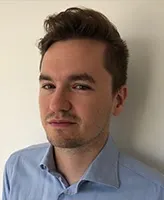
The Darrow Scholarship made a tremendous difference for Matthew Longarini when he was applying to law schools. He was living in Japan at the time and his ultimate goal was to practice law there. Conventional wisdom told him that starting his legal career in Japan immediately after graduation wasn’t necessarily the right move, but he decided to follow his instincts. The Darrow Scholarship from Michigan Law made all the difference.
“When I entered law school in 2010, there was great uncertainty about the future of the legal profession, including both career and work-life balance prospects for new attorneys. In addition, never having practiced law, it was difficult to truly assess whether it would be a good fit for me. Having a Darrow Scholarship gave me the peace of mind to pursue my academic and professional interests, limiting the downside if things didn’t work out for whatever reason.”
During his 1L year at Michigan Law, Longarini felt that his Darrow Scholarship gave him a certain confidence. “Given the number of smart, talented, and accomplished people around me at the Law School, I likely would have been prone to a degree of impostor syndrome were it not for the Darrow, as I come from a pretty ordinary background and was not that well-spoken during professors’ cold calls.” After surviving his first year, Longarini was an editor of the Michigan Law Review and a research assistant to Professors James J. White and Bruce Frier.
Longarini bolstered his language skills while at Michigan Law, taking three semesters of advanced Japanese, allowing him to pass the highest level of the Japanese-Language Proficiency Test.
On top of the cachet his Darrow gave him, Longarini also knew that come graduation, he would not have to worry about a heavy debt hanging over his head. The pressure to take a job in the United States with an eye towards resume-building, rather than his desired job overseas, was immediately alleviated, and Longarini was able to move to Japan to begin his legal career.
What he’s doing now
Today, Longarini is an associate in the Tokyo office of Morrison & Foerster, one of the largest international law firms in Japan. As a member of its corporate department, he handles securities offerings to international investors on behalf of Japanese companies and the Japanese government, as well as mergers and acquisitions.
He joined the practice in 2013 following graduation, after serving there as a summer associate during his 2L summer. He also spent his first summer after starting law school in Tokyo at Nishimura & Asahi, one of Japan’s largest domestic law firms.
Gratitude to Michigan Law for his Darrow
The Darrow gave Longarini the flexibility to follow his dreams and informed his approach to the law and his career. “It helped me decide to do what I wanted without practicing in the U.S. first, which was something I had no interest in. At my firm, I’ve continued to pursue the sorts of projects that interest me rather than those that might look most impressive on a future resume, which has helped me carve out a niche in an area of law I actually enjoy without the disruption of switching to another firm or moving in-house. Without the Darrow Scholarship, I’m not sure I would have had the confidence to spurn conventional wisdom and do what I wanted.”
-
Richard Marsh Jr.
- Michigan Law, 2009, JD
- Brigham Young University, 2006, BS, physics with a minor in mathematics
Life as a Darrow at Michigan Law and beyond
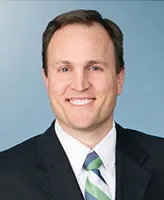
During the process of selecting a law school, Richard Marsh Jr. had narrowed his list to a few top-tier schools. He was excited about Michigan Law but was torn between moving to Ann Arbor or choosing another school from his list. “For me, the opportunity to be a Darrow Scholar helped cement my decision. Looking back, I am extremely grateful that I made that choice.”
He is grateful for the financial freedom the Darrow Scholarship provided, enabling him to be more selective with professional opportunities during his 1L and 2L summers and after graduation. He was able to tailor his summer employment to his professional and personal goals without the fear of law school debt driving the decision on financial terms alone. Marsh also considers receiving the Darrow Scholarship a tremendous honor. “Michigan Law consistently attracts amazing talent and the list of past Darrow Scholars is incredible. I am thankful that I had the privilege of joining those prestigious ranks.”
One of Marsh’s primary achievements coming out of law school was clerking for the Hon. William C. Bryson for the U.S. Court of Appeals for the Federal Circuit. He considers his Darrow Scholarship, his experiences at Michigan Law, and the relationships he formed with his professors as key to that success.
“The relationships I formed with my fellow students and the name recognition of Michigan Law also have opened many doors for me professionally. The combination of the Darrow Scholarship, my Michigan Law degree, and my federal circuit clerkship has been a launching pad for my career. Many of the opportunities for significant personal growth arose because of my legal training, which all started with the Darrow Scholarship.”
What he’s doing now
Marsh recently joined Medtronic as in-house patent counsel and supports many of its business units. Previously, he was a partner at Faegre Baker Daniels in Denver, where he assisted companies in protecting their intellectual assets and served as lead counsel in several inter partes review proceedings in response to patent infringement lawsuits. He also helped defend Faegre Baker Daniels’s victories on appeal to the federal circuit and the U.S. Supreme Court.
Gratitude to Michigan Law for his Darrow
Personally, Marsh says that the financial support of the Darrow Scholarship was more meaningful than he could have imagined. “My wife and I welcomed twin sons into the world during my 1L year,” he said.
Because of health complications, the twins endured a prolonged stay in the Neonatal Intensive Care Unit. “The financial support from the Darrow Scholarship took a tremendous load off my shoulders, enabling me to focus on my class load and my new responsibilities without drowning under the weight of the ensuing hospital bills.”
“With all the opportunities Michigan Law makes possible, having the freedom to embrace a path that maximizes personal fulfillment and professional satisfaction may be the greatest benefit of being a Darrow Scholar.”
-
Andrea Delgadillo Ostrovsky
- Michigan Law, 2005, JD, cum laude, Order of the Coif
- University of Chicago, 1998, BA, environmental studies, with honors
Life as a Darrow at Michigan Law and beyond
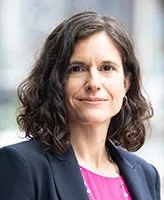
After majoring in environmental studies, Andrea Delgadillo Ostrovsky, ‘05, decided she wanted to practice environmental law—an interest strengthened after her years as an AmeriCorps volunteer restoring rural lands in southwest Washington.
When looking at law schools, the Milwaukee native applied to Michigan Law for a number of reasons. “It had a strong environmental law program and the university as a whole has a good reputation in that arena. But more importantly, Michigan Law provides an excellent legal education, and I was very happy to return to the Midwest after having worked on the West Coast for a couple of years.”
Ostrovsky loved her time in the Quad, and participated in student organizations like the Latino Law Students Association, the Women Law Students Association, and the Environmental Law Society. She also was a student-attorney in the Criminal Appellate Clinic. “I had a great experience at Michigan Law. It was very challenging but rewarding. I made lifelong friends and met my husband, Aaron Ostrovsky, who was a summer starter like me.”
When she received her Darrow Scholarship, Ostrovsky was surprised and honored. “It meant a lot to me to receive an award in the name of such a phenomenal lawyer—a strong advocate who championed civil liberties and justice.”
What she’s doing now
Ostrovsky took many environmental law courses and worked for environmental organizations during her summers, but a different path emerged once she started clerking. “I realized I wanted to have a more general practice and be a trial lawyer. I was captivated by the intensity and fast pace of trial practice. And having a general practice allows me the opportunity to continue learning with each new case and client.” Ostrovsky derives great purpose from representing clients. “Advocating for clients is at the heart of what I do. Many of my clients are in incredibly difficult situations, and I am deeply motivated by the opportunity to help and advocate for them.”
As a founding member of Calfo Eakes & Ostrovsky (CE&O)—a litigation boutique firm in Seattle—Ostrovsky represents individuals and companies in criminal and civil matters. She practices in the areas of white-collar criminal defense and commercial litigation, including whistleblower and False Claims Act litigation, and employment litigation. Ostrovsky also serves on the Criminal Justice Act Panel, through which she represents indigent defendants in federal criminal matters.
Ostrovsky kicked off her legal career clerking for Justice Robert L. Eastaugh of the Alaska Supreme Court and then for The Hon. Marsha J. Pechman of the U.S. District Court for the Western District of Washington. She worked for two small litigation firms before forming CE&O with her partners. Ostrovsky was first named a “Super Lawyer” by Washington Law and Politics in 2013—an honor she has received every year since, and she has been recognized by both Benchmark Litigation and Chambers & Partners.
Although she does not specialize in environmental law, Ostrovsky remains passionate about environmental and sustainability issues. She serves on the board of Forterra—a regional nonprofit committed to securing wild, working, and key community lands for a more sustainable future for all Washingtonians. She also is the co-founder of the Friends of Cheasty Greenspace at Mountainview, a volunteer-led community group that has restored and maintains one of Seattle’s many green spaces.
In 2013, she received a Denny Award for Conservation and Environmental Stewardship.
Gratitude to Michigan Law for her Darrow
Ostrovsky is grateful to Michigan Law for the opportunities the School provided her, including the Darrow, which meant that she did not have to incur law school debt. She worked for nonprofit organizations in the summer and, after graduating from law school, was able to clerk for three years.
“I think often of my time at Michigan Law and of my Darrow Scholarship. I feel inspired by Darrow’s legacy of using our legal skills and knowledge to zealously advocate for clients in really challenging situations.”
-
Yang Wang
- Michigan Law, 2008, JD, magna cum laude
- University of Maryland, 2005, MA, Applied Mathematics
- University of Maryland, 2001, BS, Mathematics and Computer Science, magna cum laude
- University of Maryland, 2000, BA, Economics, summa cum laude
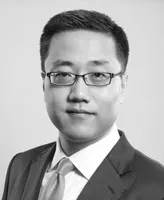
Yang Wang lived in the Lawyers Club all three years at Michigan Law and fondly recalls the laughter that punctuated the dinnertime chats he shared with classmates. On Saturday evenings, when the dining room was closed, it was common for Wang and his fellow students to “venture outside the Law Quad in search of the best beer and Chinese food in town.”
Food and fellowship were an integral part of Wang’s Law School experience, which included working on the Michigan Law Review during his 2L and 3L years.
An American education
A native of China, Wang came to the United States to attend college at the University of Maryland, where he was offered a full scholarship thanks to the financial generosity of Clopper Almon, an economics professor who had established the scholarship at Maryland for undergraduate students from former or current communist countries. “The only ‘string’ attached to the scholarship was that Professor Almon hoped that recipients would eventually return to their home countries to make an impact there with their American education,” Wang said.
Wang worked as a computer programmer after graduating from Maryland, and while the work was “fun and fulfilling,” he realized it “probably was not a career that would allow me to maximize the benefits of an American education and help make an impact back home when I returned.”
A law degree seemed like it would fit the bill, Wang thought, and with the encouragement of Professor Almon, he applied to Michigan Law, where he was offered a Darrow Scholarship. “To someone who had benefited tremendously from an undergraduate scholarship, both financially and in terms of the mentoring I received from Professor Almon, I saw the Darrow as a unique opportunity to, without the near-term financial impact of a law school education, develop a long-term relationship with a renowned institution and outstanding faculty at the forefront of the American legal education,” he said. “It did not take me much time at all to decide to attend Michigan, and 10 years later I am still very happy that I made that choice.”
Fulfilling legal work
Wang graduated from Michigan Law in 2008 and worked as an associate in the New York office of Sullivan and Cromwell LLP. In 2010, he joined the Beijing office of Simpson Thacher & Bartlett LLP where he is a partner doing cross-border M&A and corporate work. Wang was recognized as one of China’s Top 15 M&A Lawyers in 2018 by Asian Legal Business.
“I do not know if I am in fact fulfilling Professor Almon’s wish that I make an impact back home, or if my work is nearly as exciting as other Darrows who have gone on to do great things,” Wang said, “but I do get a tremendous sense of satisfaction out of my work, especially when I use my training as an American lawyer and upbringing as a Chinese to explain issues in a way that appear sensible and rational to both sides and to help bridge legal, commercial, and cultural gaps. If these types of transactions help China become more integrated with the rest of the world and for the world to understand China better, then hopefully I helped make some small impact somewhere along the way.”
The impact of a Darrow Scholarship
Wang remains thankful for the Darrow Scholarship, which he said is “much more than an extremely generous, named scholarship at a world-leading institution. The Darrow afforded me the opportunity to receive an outstanding education that I would otherwise not have, to more fully enjoy the education than I would otherwise be able to, and, most importantly, to have a sense of responsibility to remain committed to the reason for which I attended law school and for which I was offered the Darrow in the first place.”
